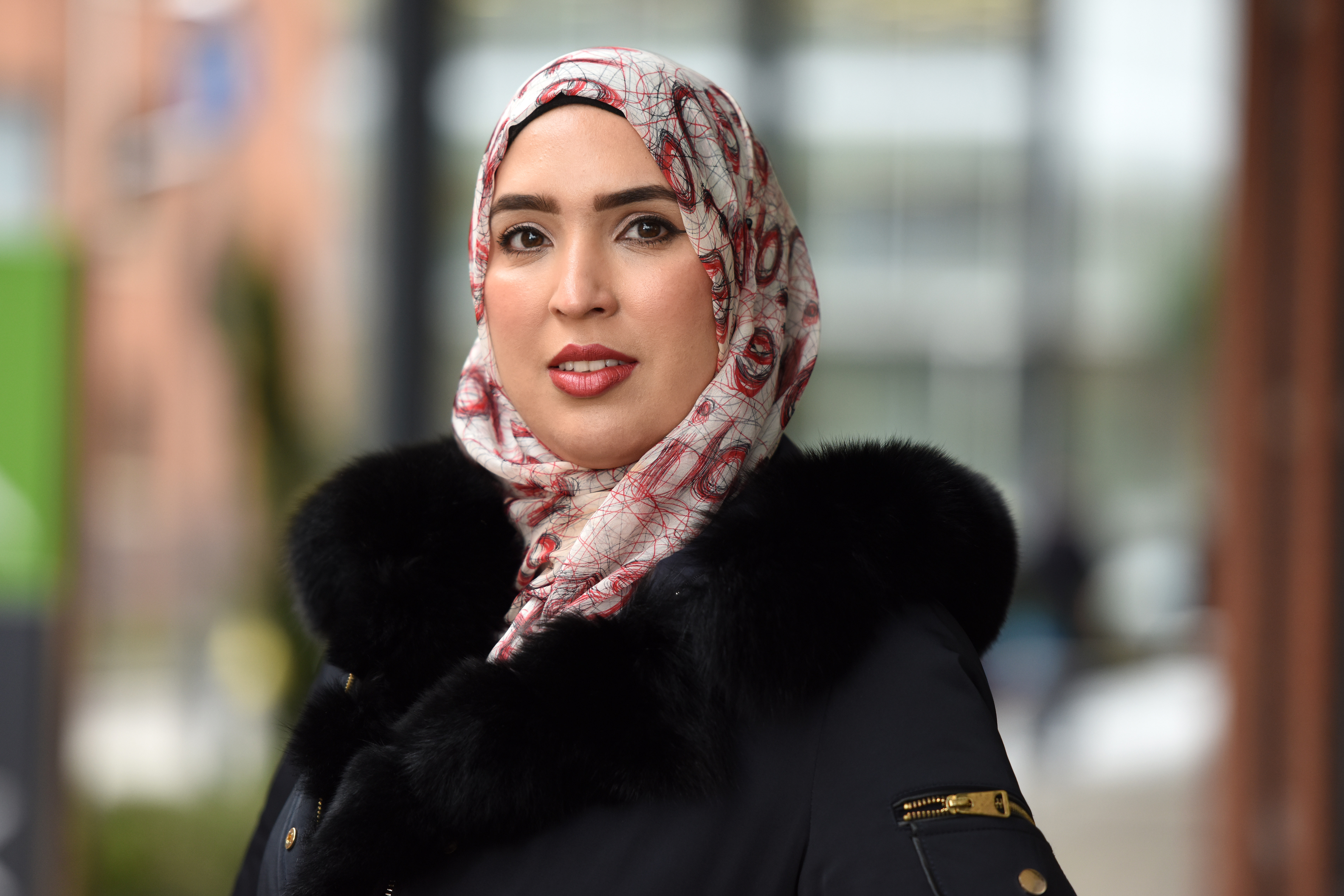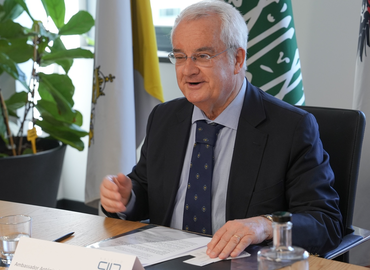"What makes us different and what separates us can bring us together"

In a coffee shop on a busy high street in Ilford, London, Asma Shuweikh is recounting the incident that brought her to international prominence.
In November 2019, Shuweikh found herself at the centre of global social media attention after a short video of her travelling on the London underground went viral. Shuweikh, who was raised in the London suburb of Barnett but has lived in Birmingham for the last decade, was visiting family and friends in the capital. One morning, while on the Northern line from Golders Green to Leicester Square, she witnessed a male passenger rush past her to launch a vicious anti-Semitic verbal attack against a male Jewish passenger and his wife. The man also threatened the Jewish passenger’s two children.
In the viral video, which lasts less than two minutes, Shuweikh can be seen intervening to calm the attacker –quietly appealing to his better nature by highlighting the presence of the man’s children. The full incident lasted around 15-20 minutes.
As Britain experiences a rise in anti-Semitic incidents – the latest figures from 2019 show a ten percent increase from 2018 – Shuweikh’s experience seemed to characterize the success of moderation and interreligious dialogue. In the days that followed, she was widely praised by the UK’s politicians, religious figures and ordinary people on social media.
In a statement later released by Campaign Against Antisemitism, the Jewish father, who did not wish to be named, said he was “extremely grateful” to Shuweikh for her intervention. “We are certain that without her intervention and distraction, he would have continued his abuse which could have escalated to physical violence,” he said.
The suspect, whose name and age has not been released by police, was later arrested on suspicion of committing a racially aggravated public order offence.
Shuweikh said she was on her way to visit a friend in hospital when she saw the attacker. “I was getting on the Northern line at Golders Green station. That’s when the man saw the Jewish family in his view, and he rushed past me and he said to them, ‘Are you Jewish?’ He was pointing at them and that’s when he started the whole of the anti-Semitic abuse towards them. He was saying things like ‘You’re not real Jews’, ‘You’re imposters’ and ‘You’re going to be my slaves’. He started saying things that I’ve never come across before.”
As Shuweikh remembers it, the man’s voice got louder as he became more animated. She decided to interrupt when he began talking to the children. “That’s when I thought it was too much. He was swearing a lot.”
She said she had no idea a video of the incident had been posted on social media until several hours later when someone sent her a link and asked if it was her. Shuweikh checked social media and discovered the video had already been shared thousands of times. “I couldn’t believe it. You never know when someone is going to film you. The comments I got were very inspiring and very kind.”
Less than a month after the incident, Shuweikh had given over 30 national and international interviews to news media, including the BBC and Channel 5. “I didn’t think about it then,” she said, of her intervention. “I just thought I’m not allowing this to happen.”
“This is the first time in history I’ve seen people say good things about Muslims,” she added. “I’m doing these interviews because I hope they can inspire other people to speak up when they see injustice. I think I do represent others who are a lot like me. When some people see a woman with a hijab, they think she’s quiet, she oppressed, she’s not going to say anything. They’re wrong. We will say something.”
Shuweikh, who studied at Christian, Jewish and Muslim schools in London, said she has always felt compelled to stand up to any form of intolerance. “As a practicing Muslim I have been taught to stand up to injustice,” she said. “It’s just the way we are, really. It doesn’t matter what race the victim is or what religion he is. If you see an injustice, then you need to talk up. In a way that’s not going to put yourself in danger, but if you can’t, then do something like call the police, but at least try not to turn a blind eye.”
She was taught about the importance of tolerance by her mother, who educated her about Islam. “Our prophet Muhammad (Peace Be Upon Him) had Jewish neighbours and Christian friends who fought along with him during the time when Islam was coming up. That was my role model in a way because he knew he had to be a citizen and a neighbor.”
“Just because you’re Muslim doesn’t mean you don’t know how to coexist with someone else from another religion. It doesn’t mean if you’re a Muslim you don’t know how to integrate with British society. I was born here in London and I see myself as a British citizen. This is what I call home. If I see something bad, then I know it has to be sorted out. As a citizen, I know I have to sort it out.”
As a former victim of Islamophobia, Shuweikh said she felt immediate compassion for the Jewish family. In 2010, she was verbally abused by a passenger on a bus. “Someone called me a raghead. He called me a terrorist and he spat at me before he got off the bus.”
She hopes anyone who watches the video of November’s incident on the Northern line will see it as a plea for tolerance. “What makes us different and what separates us can bring us together. I like to know about other people’s religions and backgrounds. In a way it enriches our lives and makes us less narrow minded. It’s a lesson for people to not be anti-Semitic, it’s a lesson for people to not be Islamophobic and not judge someone because of the colour of their skin. It’s a lesson for everyone.”

Imagine Europe without the European Convention on Human Rights. No Court in Strasbourg to…


